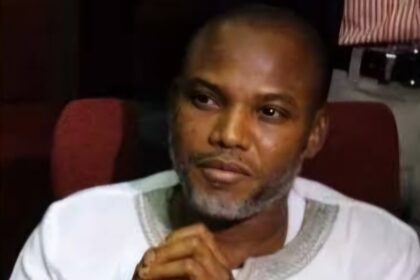Who will make up the cabinet of Governor Godwin Obaseki? Will they be able to carry out the policies of the new technocrat governor who is not a typical politician? These are some of the questions currently agitating the minds of many residents of Edo State. Since November 12 when he assumed office as the new helmsman, Governor Godwin Obaseki has kept political supporters guessing, on what shape his cabinet will take. He has only named a few political appointees, with the promise that the remaining members of his cabinet will emerge after six weeks. In the interim, he has been working with Permanent Secretaries and the idea is for him to understand the structure of governance, to evolve ways of reducing the cost of governance.
Supporters and members of the All Progressives Congress (APC) have been waiting anxiously to find out who gets appointed into the various vacant cabinet positions. In the meantime, Obaseki has tried to spell out specific deliverables that he expects political appointees to achieve.
Speaking recently during the swearing-in ceremony of the Secretary to the Government, Osarodion Ogie, Obaseki said the first six weeks would enable him understand the processes and the system in government with a view to meeting the high expectations of the people.
His words: “We will tackle the challenges ahead of us. We are cognizant of what is going on around us. Government has to work for politics to succeed. Initially, we will emphasize more governance. Let us put in place a governance structure, so that our political structure can survive and endure. For the next six weeks, we are going to work with the Permanent Secretaries to understand the structures of government; so that we can make governance much more efficient. We cannot afford the high cost of governance we run today. The money is not there. We can restructure how we work. We can get more from the people we already have.”
Obaseki’s dream is to position the state as the number one economy in the country, with first class institutions capable of nurturing enduring policies and deliver on infrastructure that would be better than what is available in the Federal Capital Territory (FCT). This would be achieved by generating more revenues internally, without putting unbearable tax burden on the people.
Three weeks into his administration, he put together a strategic dialogue team led by Professor Julius Ihonvbere. Other 149 members of the team were Permanent Secretaries, technocrats, traditional chiefs, politicians and members of the civil society. They had a three-day intensive strategy dialogue, to raise implementable plans for the administration.
The dialogue took place under the theme, “Setting Agenda for the New Administration” and it was centred on six thematic areas, namely: Economic Revolution, Culture and Tourism, Environmental Sustainabilty, Welfare Enhancement, Infrastructure Development and Institutional Reform.
Addressing participants at the meeting, the governor said he would use another six weeks to study the six thematic areas before commissioners and other political appointments would be made. This, he said, was to enable political appointees have ideas on the specifics of what his administration set out to achieve.
Obaseki informed the participants that his administration would be built around adequate data gathering, careful planning, enforcement, implementation and execution; even as he vowed to evaluate those he would give responsibility, no matter how powerful they are.
He said: “I want to make it abundantly clear the government under my leadership will not indulge in frivolities; neither will we play to the gallery. Let me assure you that your reports will be comprehensively looked into, studied with actionable projects and programmes extracted for implementation.
“Through our efforts at running a transparent, accountable and prudent government, we should be able to cut wastefulness and untargeted expenditure to free up resources to enable the implementation of most of the projects identified.
“We will intensify our revenue collection efforts and this is the strategy that we will pursue with a human face to make tax liability friendly.
“Our promise is that we will desist from a situation where contractors or service providers define governance and policies in this state. When we came in eight years ago, we saw that government policies were done at the whims of contractors, because they wanted to promote their business interests. But that has to stop.”
During the presentation of the 2017 budget proposals to the Edo State House of Assembly, Obaseki said the budget was wrapped around the six thematic areas that the strategic dialogue team was asked to proffer solutions on.
Nevertheless, it appears that Obaseki’s focus in 2017 is on three key areas, namely: social welfare, institutional revolution and industrialization. A pointer to this fact was when he paid an unscheduled visit to the now moribund Benin Technical College, the School of Health Technology, the School of Nursing and Midwifery and the civil service secretariat located along Sapele Road within the capital.
In all of his visits, Obaseki expressed dismay at the level of decayed infrastructures and promised to urgently tackle them within the shortest possible time.



